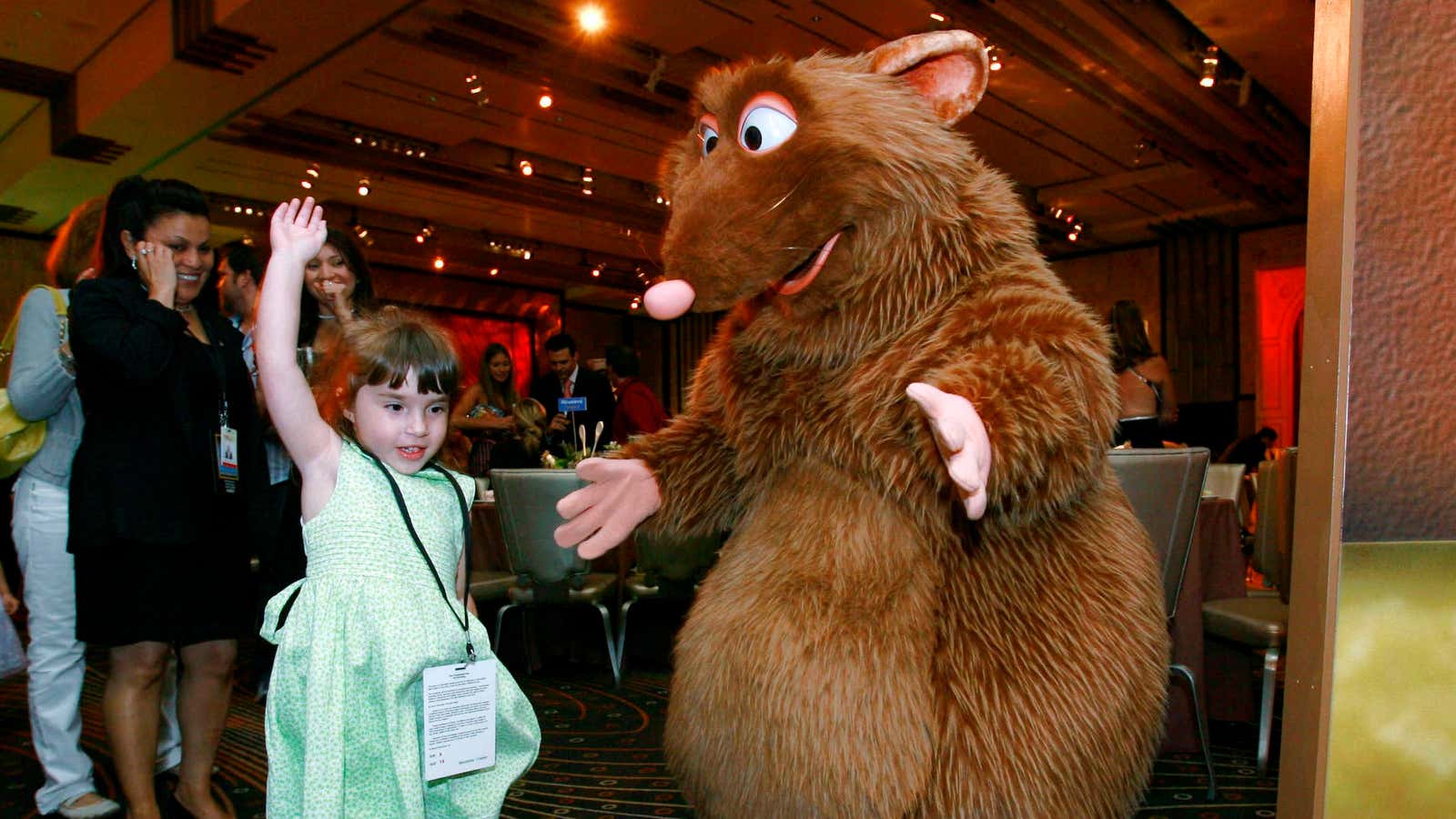On Friday, a judge in San Jose took the rare step of rejecting a $324.5 million settlement in a class-action lawsuit over whether Apple, Google, Adobe, and Intel conspired not to hire each other’s employees—an anti-competitive practice that it is alleged to have kept salaries of 64,000 eligible employees artificially low. The rejection vindicated Michael Devine, one of the four named plaintiffs in the suit, who wrote to the judge and asked her to reject the deal negotiated by his own lawyers because of the paltry terms.
Judge Lucy Koh said in her 32-page decision (uploaded by Pando) that “the court cannot conclude that the instant settlement falls within the range of reasonableness.” (The suit previously included Intuit, Lucasfilm, and Pixar, the animated film giant that once gave us a searing indictment of restrictive employment practices set in the kitchens of Paris.)
The lawsuit covers the period between between 2005 and 2009 but the origins of the alleged anti-poaching ring within Silicon Valley dates back to the 1980s, when Star Wars creator George Lucas sold Pixar to Steve Jobs. In court documents, the lawsuit alleges that Lucasfilm and Pixar agreed not to hire each others employees at the time:
George Lucas believed that companies should not compete against each other for employees, because ‘[i]t’s not normal industrial competitive situation.’ As George Lucas explained, ‘I always — the rule we had, or the rule that I put down for everybody,’ was that ‘we cannot get into a bidding war with other companies because we don’t have the margins for that sort of thing.’
Jobs then allegedly stuck to those principles espoused by the man who invented The Force—which perhaps makes sense as all six movies are about the Skywalker family choosing from competing job offers between the Jedi and the Sith.
Jobs eventually enforced the cartel on a new generation of tech companies in the 2000s, the lawsuit alleged. Koh dedicates around five pages of her motion denying the settlement to Apple and in particular, the conduct of Steve Jobs. She said there is “substantial and compelling evidence that Steve Jobs was a, if not the, central figure in the alleged conspiracy.” Sergey Brin, one of Google’s co-founders, testified in court, “I think Mr. Jobs’ view was that people shouldn’t piss him off.” Court documents already released show some incredibly forthright and blunt emails back and forth between Jobs and then-Google CEO Eric Schmidt. In one exchange, Jobs said:
I’m told that Google’s new cell phone software group is relentlessly recruiting in our iPod group. If this is indeed true, can you put a stop to it?
Schmidt, quite unfortunately, replied to one email about having a recruiter who accidentally broke the no-hire pact fired in person because he:
…didn’t want to leave a paper trail over which we can be sued. Not sure about this.
Google made a “public example” out of the recruiter and he was fired “within the hour.” Schmidt emailed Jobs to apologize and inform him that the recruiter was now gone. Jobs forwarded Schmidt’s email to an Apple human resources manager, simply adding:
: )
It is emails like this, Koh said, that meant that Apple and the other companies would have have faced $9 billion in potential damages if the class-action went to trial. The proposed settlement of $324.5 million would have resulted in just $3,750 per employee. She suggested that if the companies didn’t want all their secrets revealed in a trial, they would have to pay more—the minimum reasonable settlement would be $380 million, based on previous settlements.
That works out to 0.26% of Apple’s $147-billion cashpile.




